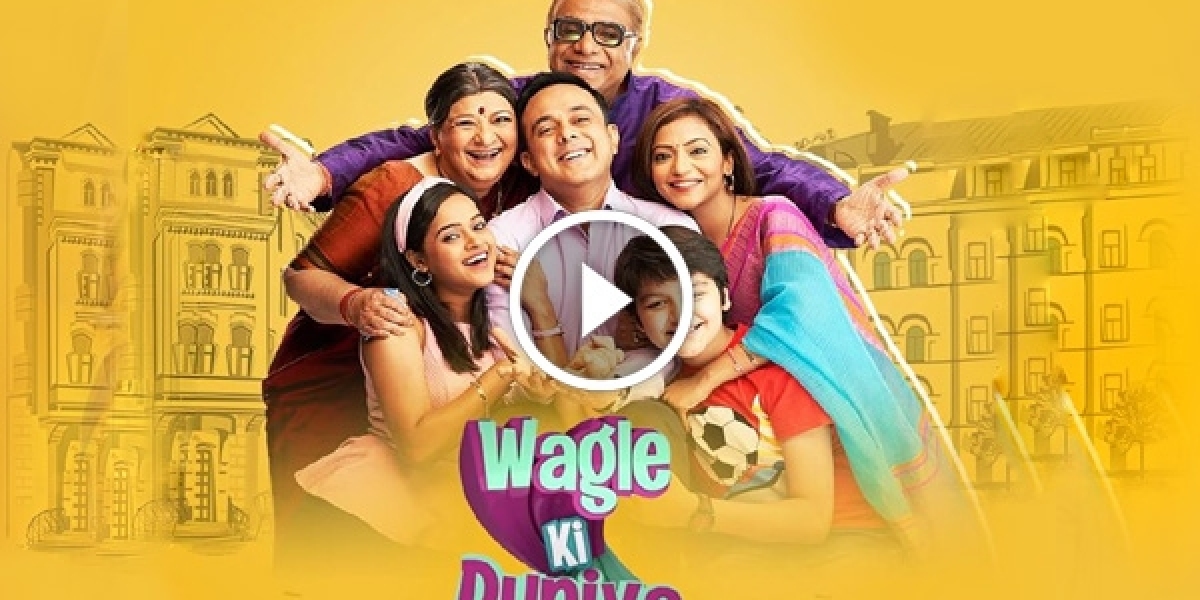"Wagle Ki Duniya," a pioneering Indian television series that originally aired in the late 1980s and early 1990s, remains etched in the memories of millions. Revolving around the middle-class struggles and aspirations of the protagonist, Srinivas Wagle, the show provided a mirror to society, reflecting its nuances with wit, humor, and profound social commentary. Created by R.K. Laxman, the renowned cartoonist and satirist, the series captured the essence of everyday life in India with remarkable insight and empathy. This article delves into the enduring legacy of "Wagle Ki Duniya," exploring its themes, characters, impact, and relevance in the context of Indian television and societal dynamics.
The Genesis of Wagle Ki Duniya
R.K. Laxman, celebrated for his iconic cartoon character 'The Common Man,' ventured into television with "Wagle Ki Duniya." Drawing inspiration from his own illustrations and observations of Indian middle-class life, Laxman crafted a narrative that resonated deeply with viewers across generations. The series premiered on Doordarshan, India's national broadcaster, during an era when television was emerging as a powerful medium for cultural expression and social reflection.
Plot and Themes
"Wagle Ki Duniya" revolved around the life of Srinivas Wagle, affectionately known as Wagle, a quintessential middle-class family man working as a clerk in a government office. The narrative focused on his everyday challenges, aspirations, and interactions with his family, colleagues, and society at large. The show adeptly addressed a myriad of themes:
Middle-Class Struggles: Wagle embodied the aspirations and struggles of the Indian middle-class, grappling with issues such as job security, inflation, education for his children, and societal pressures.
Bureaucratic Red Tape: Working in a government office, Wagle often encountered bureaucratic inefficiencies and red tape, humorously depicted through his interactions with officious colleagues and superiors.
Family Dynamics: The series portrayed the dynamics within Wagle's family, including his supportive wife, Radhika, and their children, each navigating their own challenges amidst the backdrop of middle-class life.
Social Issues: From corruption and communal harmony to gender roles and generational conflicts, "Wagle Ki Duniya" fearlessly addressed pertinent social issues with a blend of humor and satire.
Community and Neighborly Relations: The show also explored the bonds of community and neighborhood, reflecting the warmth and camaraderie amidst the daily struggles of urban life.
Characterization
Central to the show's success were its well-defined characters, each contributing uniquely to the narrative:
Srinivas Wagle (Anjan Srivastav): The heart of the series, Wagle was portrayed as an honest, principled man with a sharp wit and a deep concern for his family's welfare. Anjan Srivastav's portrayal resonated deeply with audiences, making Wagle a beloved figure.
Radhika Wagle (Bharati Achrekar): Wagle's supportive and understanding wife, Radhika, provided a strong emotional anchor to the series. Her portrayal reflected the strength and resilience of Indian homemakers.
Mr. Deven Verma (Alok Nath): Wagle's boss at the office, Mr. Deven Verma, represented the bureaucratic archetype—often oblivious to ground realities yet wielding authority with a touch of comedic pomp.
Neighbors and Supporting Cast: Characters like Mrs. Patwardhan, Mr. Paramveer, and others added layers of humor and relatability, enriching the portrayal of everyday life in a bustling Indian neighborhood.
Impact and Cultural Significance
"Wagle Ki Duniya" left an indelible mark on Indian television and society, for several reasons:
Social Commentary: By humorously critiquing societal norms and bureaucratic inefficiencies, the series encouraged viewers to reflect on pressing social issues, fostering a sense of civic engagement.
Cultural Relevance: The show's portrayal of middle-class values and aspirations struck a chord with audiences across demographics, transcending regional and linguistic barriers.
Memorable Dialogues and Moments: Iconic dialogues like "Ji, aap bhi junior hai, main bhi junior hoon, lekin farak itna hai ki aap hamesha junior rahenge" became part of popular culture, embodying the show's wit and satire.
Legacy and Remakes: Even decades after its original run, "Wagle Ki Duniya" continues to be revered, inspiring a remake in 2021 with a contemporary twist, attesting to its enduring relevance.
Influence on Television: The success of "Wagle Ki Duniya" paved the way for other shows to explore similar themes and narratives, contributing to the evolution of Indian television as a medium for social reflection and cultural storytelling.
Conclusion
In conclusion, "Wagle Ki Duniya Today Episode" stands as a testament to the creative genius of R.K. Laxman and the collaborative efforts of its cast and crew. Through its insightful portrayal of middle-class life in India, the series transcended entertainment to become a cultural touchstone, fostering empathy, introspection, and collective laughter. Its enduring legacy underscores the timeless appeal of narratives rooted in everyday realities, making "Wagle Ki Duniya" not just a television show, but a cherished part of India's cultural tapestry. As we look back on "Wagle Ki Duniya," we celebrate its ability to entertain, provoke thought, and inspire—a true reflection of the diverse, dynamic, and ever-evolving spirit of Indian society.

![Joe Rogan CBD Gummies Reviews [SWINDLE or LEGIT] ShockinG Side Effects Revealed!](https://f002.backblazeb2.com/file/yoosocial/upload/photos/2024/02/BMwDosMuRHDY4j3KXUuL_16_48639a96c8c0578d77c88662d95b5beb_image.png)







